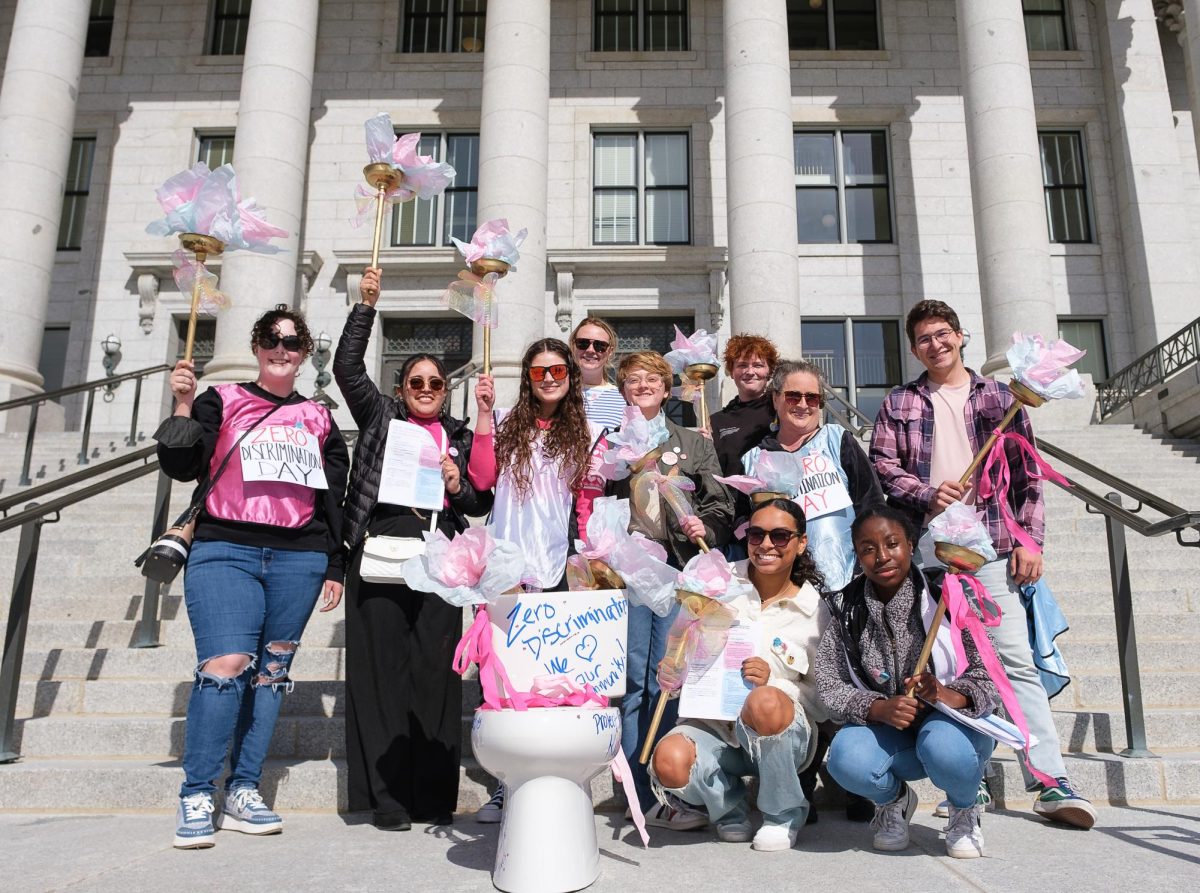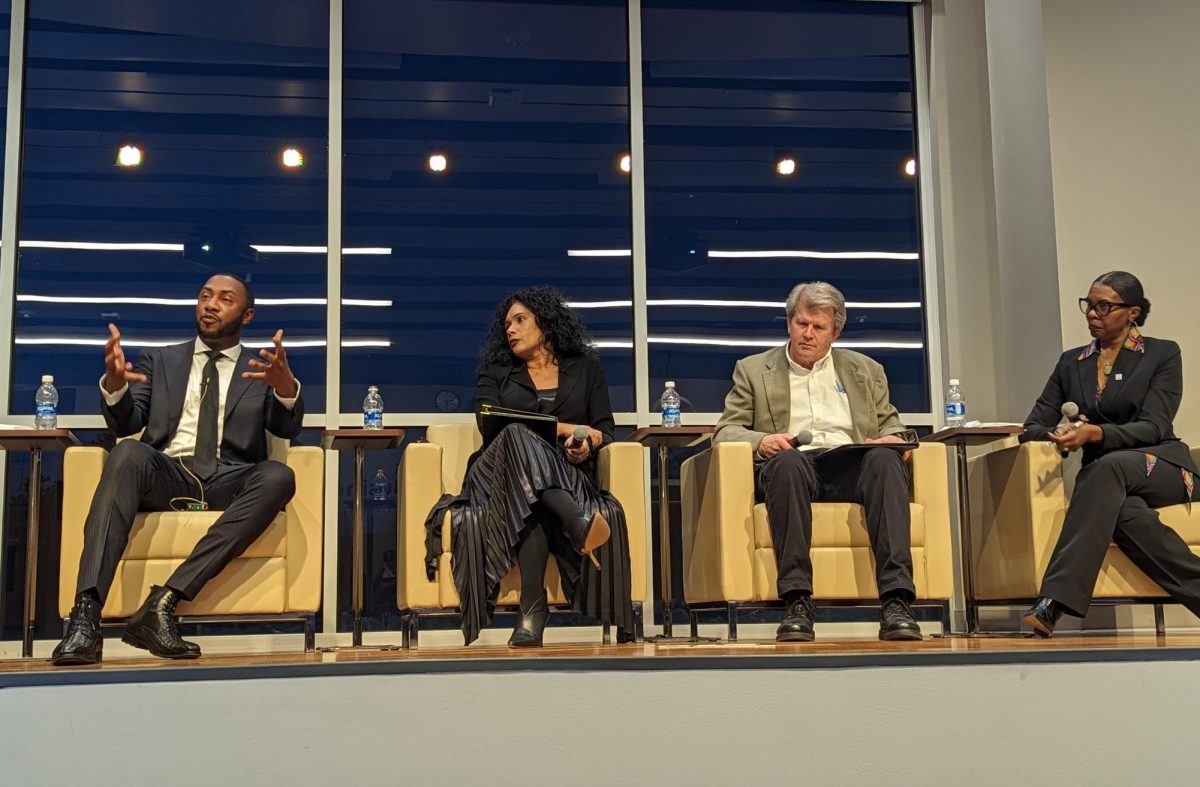
Chronicle File Photo
On April 10, 2013, watchdog organization Public Citizen sent a letter to the Department of Health and Human Services requesting a public apology to parents in a study that put premature infants at risk. The U was one of the institutions involved. The HHS has yet to make any official comment or response, but HHS’ silence has not deterred Public Citizen. On Monday, the organization wrote to HHS requesting the suspension of all ongoing baby trials the National Institute of Health and the federal government support.
According to Michael Carome, deputy director of Public Citizen’s Health Research Group, the findings of the Surfactant, Positive Pressure, and Oxygenation Randomized Trial study were published on May 27, 2010 in the New England Journal of Medicine study. The study aimed to find the ideal blood oxygen saturation levels to minimize death, brain damage and eye damage in premature infants. A reader voiced concern to the Office for Human Research Protections about the ethics of the trial. It was not until the OHRP at HHS began investigation into the trials that the consent form problems were discovered.
“After the SUPPORT study, there is reason to believe [the parents] aren’t being given adequate information in these trials either. Parents might be being misled like they were in the SUPPORT study,” Carome said.
According to an April 15 press release from Public Citizen, there are at least seven randomized NIH-funded trials involving infants either in progress or about to begin. More than 4,500 newborn babies will be enrolled in these randomized trials if they continue as scheduled. Public Citizen claims there is risk in all the trials, and that “the likelihood of death” is one of the main factors being tested.
“These randomized clinical trials clearly involve risks,” Carome said.
The OHRP issued a letter to the University of Alabama at Birmingham on Feb. 8, 2013, addressing the consent form issues. Theresa Defino, a journalist with the Report on Research Compliance, saw the letter and informed Public Citizen.
There were 23 institutions involved in enrolling infants in the SUPPORT study, but the OHRP letter only requested action from the UAB, the head institution in the study. All 23 institutions received courtesy copies of the letter, but no action was required on their part.
“We think they should require action from all of the institutions,” Carome said. “They say in their letter to Alabama that they looked at the consent forms from all of them, and they all had the same problems.”
Arthur L. Caplan is the head of the medical ethics division at the NYU Langone Medical Center. He told The New York Times he believed the researchers “did a lot of damage before they realized what was going on.”
Jeffrey R. Botkin, a pediatrics professor and medical ethicist at the U who was also a researcher in the study, thinks there are other sides to the case which need to be considered.
“The press has not done a good job in reporting the complexity of the issues,” Botkin said in an email on Wednesday. “I certainly do not support the suspension of all NIH trials involving the randomization of infants as a response to this case. Such a decision would not promote the welfare of these critically ill infants.”
Botkin noted that the U is well aware of the case and taking it seriously, thoroughly investigating every detail on its side. He said the process might take several weeks.
As far as Carome is aware, no parents of infants involved in the SUPPORT study have officially complained, but there have been one or two comments from parents in an April 11 article in The New York Times about the study. One parent allegedly wrote that her infant had been in the low oxygen group and suffered neurological injury. Carome also said there was a comment from a parent who SUPPORT researchers approached three times. She declined each time and is now glad to have done so.
While the OHRP has not made any official response to Public Citizen’s request, its director, Dr. Jerry A. Menikoff, spoke to The New York Times earlier this week. Menikoff said what the researchers did was similar to flipping a coin and giving each infant a 50 percent chance of being on one side or the other.
He said the lack of adequate warning to the parents troubled him and that various forms of punishment for the research institutions are being considered.
In addition to the new letter requesting suspension of the seven trials, Public Citizen has started a petition in support of their first letter asking HHS Secretary Sebelius to apologize for the SUPPORT study. So far, the petition has over 16,000 signatures.
Sebelius has yet to comment, but Carome said Public Citizen will not be backing down anytime soon.
“We think [the parents] deserve an apology and a full disclosure of what they weren’t told. We’ll continue to push in the public arena to take the actions we’re requiring, and we’ll do that through whatever channels we need to [in order] to achieve the results we’re seeking,” Carome said.
Write for Us
Want your voice to be heard? Submit a letter to the editor, send us an op-ed pitch or check out our open positions for the chance to be published by the Daily Utah Chronicle.
@TheChrony
Print Issues
Write for Us
Want your voice to be heard? Submit a letter to the editor, send us an op-ed pitch or check out our open positions for the chance to be published by the Daily Utah Chronicle.
@TheChrony
Public Citizen seeks apology for study
April 18, 2013
Leave a Comment





















